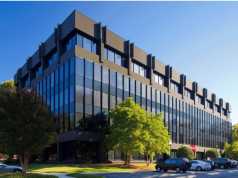When Lynn Smith joined commercial real estate giant Cushman & Wakefield nearly five years ago, she was the only black female broker in the Atlanta office, and still is.
When she attended a national conference of the Society of Industrial and Office Realtors, which drew hundreds of brokers, she stood out as the only black female there.
The face of commercial real estate, she saw, is not the face of America.
So Smith wrote a paper proposing a national conference where minority professionals in commercial real estate could network, learn, do some deals and help open the field to other African-Americans, Latinos and Asian-Americans.
She presented her idea to ACRE Network, an Atlanta-based group of minority commercial real estate professionals, and was encouraged to pursue it.
The result is the annual Global Diversity Summit. In its second year, the summit kicks off Monday at the Georgia World Congress Center.
More than 400 businesspeople have registered. Mayor Shirley Franklin is scheduled to address the conferees Tuesday at 7:30 a.m.
Other guest speakers include heavy hitters in commercial real estate from around the country: Victor MacFarlane, CEO of MacFarlane Partners in San Francisco; Quintin Primo III, CEO of Capri Capital Partners in Chicago; Richmond McCoy, CEO of Urban America in New York; and Thomas Baltimore Jr., president of RLJ Development in Bethesda, Md.
“These people can open doors — if no one else’s, their own doors,” said Michael Tabb, owner of real estate company Red Rock Global and former global director of real estate for Coca-Cola.
The summit is important, Smith said, because “there are many minorities in the industry who feel alone.”
Aasia Mustakeem, a partner at Powell Goldstein who specializes in real estate, said the summit’s role in diversifying real estate will affect future development.
“This allows people to change the landscape literally,” Mustakeem said. “But it also changes the landscape to allow people who previously did not have an opportunity … to be involved.”
Developers are increasingly looking at Southside Atlanta, where many African-Americans live, for new opportunities.
Still, Southside development has moved slowly, in part because too few African-Americans are involved in the decision-making, Tabb said.
One of the summit highlights is a case study called “Deal or No Deal.” Georgia State University students and associates in the Real Estate Associate Program, which trains minorities interested in commercial real estate, are finalists in a redevelopment competition for English Avenue Elementary School.
Atlanta Public Schools is selling the school, which has been closed for several years. The winning team will meet the purchaser. If that company adopts some of the team’s proposals, the competition judges — all successful businesspeople — might provide funds for the redevelopment project, Tabb said.
">KEVIN DUFFY, The Atlanta Journal-Constitution




